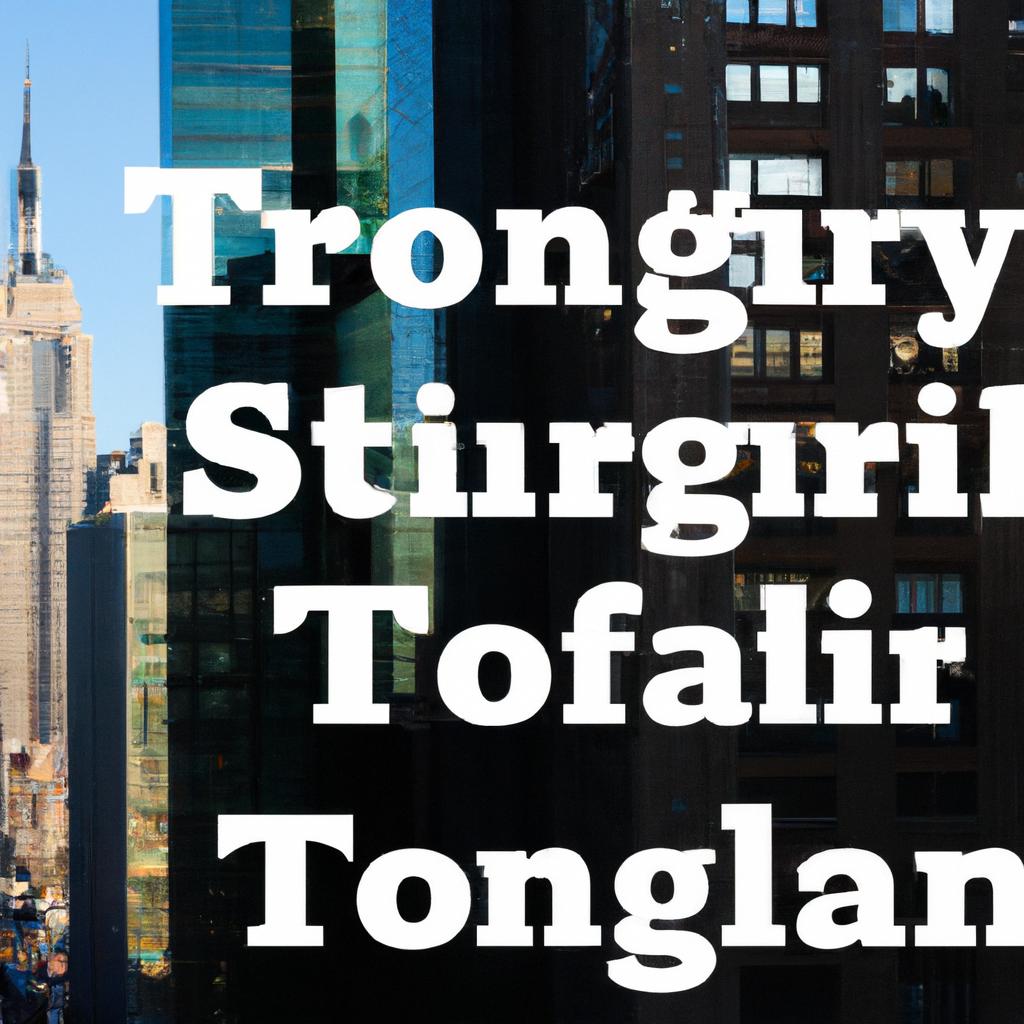As seasoned practitioners in the field of estate planning and elder law, we at Morgan Legal Group in New York City understand the importance of establishing a secure foundation for the future of your family. Among the many tools available to accomplish this goal, the creation of an open family trust stands out as a versatile and effective means of protecting your assets and providing for your loved ones. In this article, we will explore the concept of an open family trust and discuss its potential benefits and considerations.
Understanding the Benefits of Establishing an Open Family Trust
Establishing an open family trust can provide significant benefits for your loved ones and future generations. One of the key advantages of an open family trust is the ability to avoid the costly and time-consuming probate process. By placing your assets in a trust, you can ensure that they will be distributed according to your wishes without the need for court intervention. This can help streamline the transfer of assets to your beneficiaries and minimize the risk of disputes among family members.
Another important benefit of an open family trust is the ability to maintain privacy for your estate plan. Unlike a will, which becomes a matter of public record after probate, a trust allows for a confidential transfer of assets. This can help protect your family’s financial affairs from prying eyes and maintain a level of discretion that may be important to you and your loved ones. Additionally, a trust can offer greater flexibility in managing your assets and provide a mechanism for managing assets in the event of your incapacity.

Key Components and Structure of an Open Family Trust
typically include a grantor, trustee, beneficiaries, assets or property, terms of the trust, and distribution of assets. The grantor is the person who establishes the trust and transfers assets into it. The trustee is responsible for managing the trust assets and following the terms of the trust. Beneficiaries are the individuals who will benefit from the trust assets.
An open family trust allows for flexibility in terms of adding or removing beneficiaries, changing the terms of the trust, and distributing assets over time. The structure of an open family trust is typically outlined in a trust agreement, which is a legal document that specifies the rules and guidelines for the trust. This document may include provisions for how assets are to be distributed, who will act as trustee, and how the trust will be administered.
Maximizing Wealth Preservation and Asset Protection with an Open Family Trust
When it comes to safeguarding your assets and preserving your wealth for future generations, an open family trust can be a powerful tool. By establishing a trust, you can ensure that your assets are protected from creditors, divorce settlements, and other potential threats. An open family trust allows you to transfer ownership of your assets to a trustee, who manages the assets on behalf of your beneficiaries. This can help to minimize estate taxes, avoid probate, and provide for the financial security of your loved ones.
With an open family trust, you have the flexibility to add or remove assets as needed, ensuring that your estate plan remains current and effective. You can also designate specific instructions for how your assets should be distributed to your beneficiaries, allowing you to control the timing and conditions of inheritance. By working with experienced estate planning professionals, such as Morgan Legal Group in New York City, you can create a comprehensive trust that meets your unique needs and goals, maximizing wealth preservation and asset protection for your family.

Considerations for Creating an Open Family Trust in New York City with Morgan Legal Group
When considering creating an open family trust in New York City, there are several important factors to keep in mind. One of the primary considerations is choosing the right trustee to manage the trust assets and ensure that your wishes are carried out according to your instructions. It is crucial to select someone who is trustworthy, responsible, and capable of handling the financial responsibilities associated with managing a trust.
Another key consideration when creating an open family trust is determining the beneficiaries who will receive the trust assets. It is essential to clearly outline who will benefit from the trust and under what circumstances, to avoid any potential disputes or confusion in the future. Additionally, openly discussing the trust with your family members can help prevent any misunderstandings and ensure that everyone is on the same page regarding your estate planning decisions.
Q&A
Q: What is an open family trust?
A: An open family trust is a legal entity that allows families to transfer assets and wealth to future generations while maintaining control and flexibility over the trust’s management.
Q: How does an open family trust differ from other types of trusts?
A: Unlike a closed family trust, an open family trust allows beneficiaries to have more input and involvement in the management and decision-making of the trust. This can help foster communication and cooperation among family members.
Q: What are the benefits of setting up an open family trust?
A: Setting up an open family trust can help protect and preserve family wealth for future generations, minimize estate taxes, and avoid probate. It also allows for greater flexibility in how assets are distributed and managed.
Q: How do you go about setting up an open family trust?
A: To set up an open family trust, you will need to work with a qualified estate planning attorney to create a trust agreement that outlines the terms and conditions of the trust. You will also need to transfer assets into the trust and designate beneficiaries and trustees.
Q: What are some common pitfalls to avoid when setting up an open family trust?
A: Some common pitfalls to avoid when setting up an open family trust include not updating the trust regularly, failing to communicate with beneficiaries about the trust’s terms, and not appointing a successor trustee in case the original trustee becomes incapacitated.
Q: How can an open family trust help maintain family harmony?
A: An open family trust can help maintain family harmony by providing a structured framework for managing family wealth, fostering communication and cooperation among family members, and ensuring that assets are distributed fairly and equitably among beneficiaries.
In Retrospect
In conclusion, an open family trust can provide a sense of security and peace of mind for you and your loved ones. By openly communicating your wishes and intentions, you can ensure that your assets are protected and distributed according to your desires. Whether you are setting up a trust for the first time or looking to make changes to an existing one, it is important to consult with a legal professional to ensure that your family’s future is safeguarded. With proper planning and transparency, an open family trust can serve as a valuable tool in preserving your legacy for generations to come.
 The concept of a family trust can be confusing and overwhelming, especially for those who are not familiar with legal and financial terms. However, it is an important tool for individuals to protect their assets and ensure their family’s future financial security. One type of trust that is commonly used is an open family trust.
The concept of a family trust can be confusing and overwhelming, especially for those who are not familiar with legal and financial terms. However, it is an important tool for individuals to protect their assets and ensure their family’s future financial security. One type of trust that is commonly used is an open family trust.
So what exactly is an open family trust? In simple terms, it is a legal entity that holds and manages assets for the benefit of family members. This type of trust can be set up during the life of the trust’s creator, or it can be created through a will to come into effect after their passing.
Unlike a closed family trust, which is only available to a specific family or group of individuals, an open family trust can provide benefits to a wider range of beneficiaries, including extended family members. This makes it a more flexible and inclusive structure for managing assets and distributing wealth.
Now that we have a basic understanding of what an open family trust is, let’s take a closer look at its benefits, practical tips for setting one up, and some case studies to better understand its significance.
Benefits of an Open Family Trust
1. Asset Protection:
One of the main advantages of an open family trust is its ability to protect assets from certain risks and threats. These risks can include, but are not limited to, bankruptcy, lawsuits, creditors, and divorce. By transferring assets into the trust, they are no longer owned by the individual and are protected from such risks.
2. Long-Term Management:
An open family trust can also provide long-term management of assets. This is particularly beneficial for individuals who have family members with special needs or minor children who may not be able to manage their inheritance on their own. The trust can manage the assets and provide for the beneficiaries’ needs over an extended period, giving peace of mind to the trust’s creator.
3. Privacy:
In contrast to a will, which becomes a public document after the individual’s passing, a trust offers privacy as it does not need to go through probate court. The trust’s terms and beneficiaries are not made public, providing a higher level of confidentiality and privacy.
4. Tax Planning:
An open family trust can also offer tax benefits. By transferring assets into the trust, they are no longer considered part of the individual’s estate for tax purposes. This can potentially reduce the tax burden for the individual and their beneficiaries.
Practical Tips for Setting Up an Open Family Trust
1. Seek Professional Assistance:
Setting up a trust can be a complex process and requires a thorough understanding of legalities and tax laws. It is essential to seek assistance from a legal or financial professional who has experience in creating and managing trusts.
2. Choose a Trustee:
The trustee is responsible for managing the trust and its assets. It is crucial to choose a trustee who is trustworthy, competent, and has the best interests of the beneficiaries at heart. It can be a family member, a close friend, or a professional trustee.
3. Define the Trust’s Purpose:
Before setting up the trust, it is essential to define its purpose and determine the beneficiaries’ needs. This will ensure that the trust’s terms and conditions align with the creator’s desires and the beneficiaries’ best interests.
4. Review and Update Regularly:
Like any legal document, it is essential to review and update the trust regularly. This will ensure that the trust’s terms remain relevant and effective in meeting the beneficiaries’ needs.
Case Studies:
Let’s take a look at some real-life situations where an open family trust has been a valuable tool for protecting and managing assets for the benefit of families.
1. Protecting Assets from Bankruptcy:
John, a successful business owner, was facing bankruptcy due to unforeseen circumstances. However, he had set up an open family trust years before, in which he had transferred his assets. The trust’s assets were not considered John’s, and therefore, protected from his creditors.
2. Providing for Special Needs:
Sara, a single mother, had a daughter with special needs who required long-term care and support. She set up an open family trust in which she included provisions for her daughter’s care and finances after her passing. This ensured that Sara’s daughter would continue to receive the necessary support after her mother’s passing.
First-Hand Experience:
“My family has been using an open family trust for generations to manage our family’s assets. It has been a blessing in times of financial challenges, and I have peace of mind knowing that my children and their future generations will be taken care of through the trust.” – Amy, North Carolina.
In conclusion, an open family trust offers several benefits, such as asset protection, long-term management, privacy, and tax planning. It is a useful tool for individuals who want to ensure their family’s financial security and manage their assets efficiently. With the right guidance, setting up an open family trust can be a straightforward and effective way to protect and provide for your loved ones.

